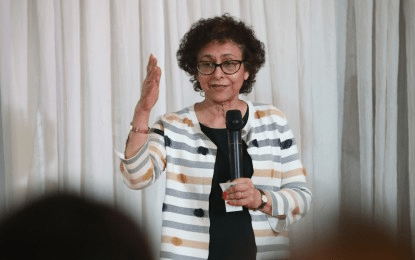By Benjamin Pulta

MANILA – The Supreme Court (SC) has ruled to allow United Nations Special Rapporteur on Freedom of Expression Irene Khan to file a pleading as an “amicus curiae” or “friend of the court” in the cyberlibel case of online publisher Maria Ressa.
The Court of Appeals (CA) affirmed in 2022 a Manila regional trial court decision against Ressa and her former researcher, Reynaldo Santos Jr., sentencing them to up to six years imprisonment over a cyberlibel complaint by businessman Wilfredo Keng.
Keng sued Ressa for a 2012 article in her online news outfit that alleged he lent a sports utility vehicle to the late former chief justice Renato Corona.
Khan said the anti-cybercrime law “fails to adequately protect the right to freedom of expression under Article 19 of the International Covenant on Civil and Political Rights.”
She said it “limits the ability of journalists to expose, document, and address issues of important public interest, thereby violating the right to receive and impart information.”
“In particular, the Cybercrime Prevention Act raises serious concerns that it limits the ability of journalists to expose, document and address issues of important public interest, thereby violating the right to receive and impart information,” Khan said.
The SC also allowed the filing of a brief, “by way of special appearance” for Ressa, by the International Bar Association’s Human Rights Institute through lawyer Maria Cristina Yambot.
Also pending before the SC and CA are cases appealing the conviction of Ressa and an order for the closure of her online news outfit. (PNA)




